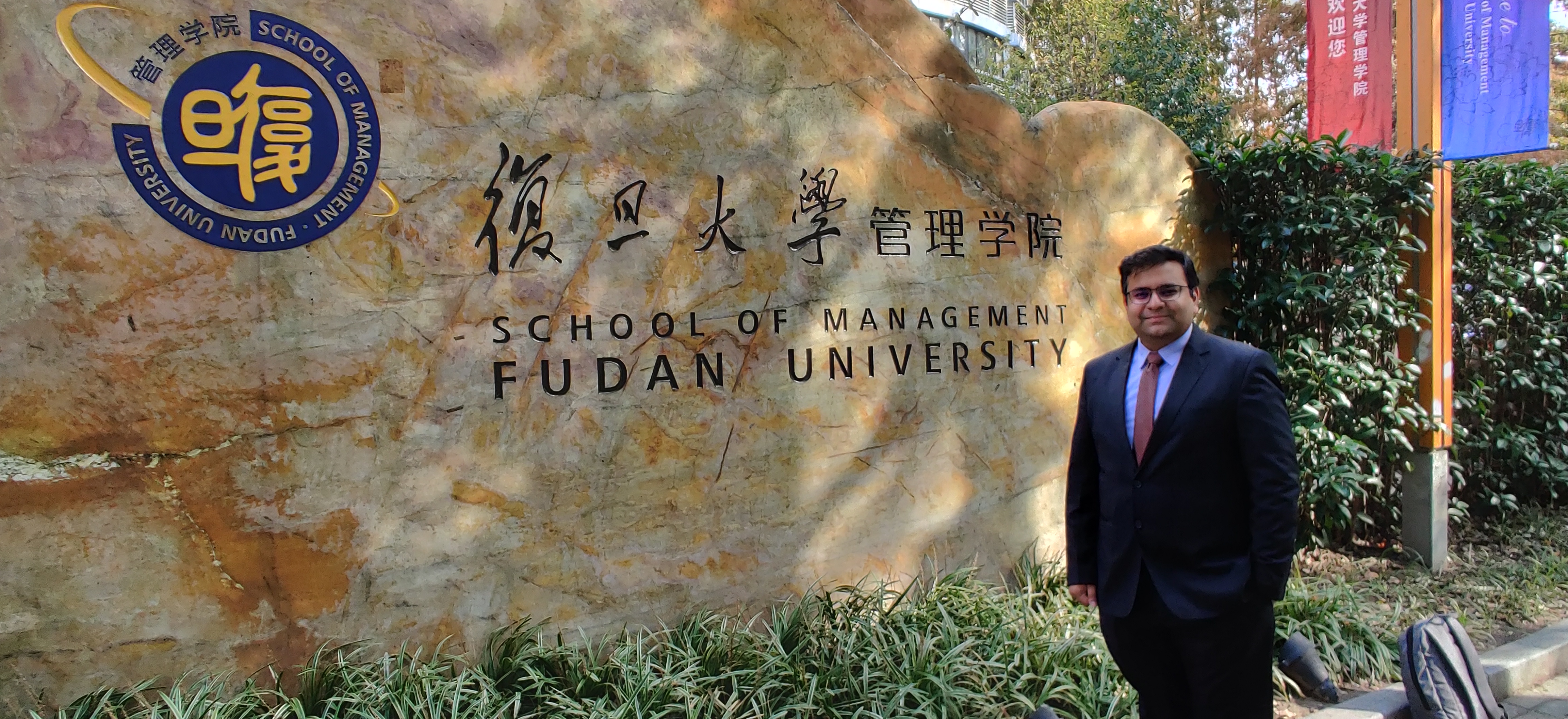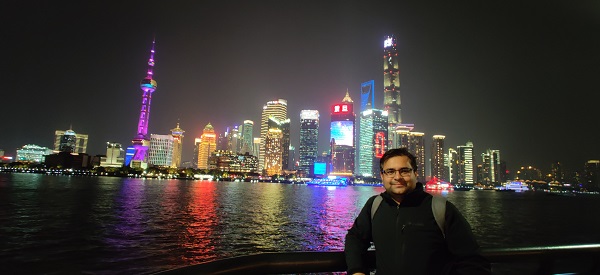For many years, I had read that China, the global manufacturing hub, is where one finds cheap labour. My recent visit to Fudan University’s School of Management in Shanghai, as part of an International Immersion module in my one-year MBA program at IIM Bangalore, was an eye-opener of sorts.

China, I discovered, is home to a booming technology industry. Companies like Tencent, Alibaba and Huawei are not only leaders on their home turf, they also offer competition to the Googles and Amazons of the western world.
It is fascinating to see China’s growth. Its GDP growth has averaged 10% a year—the fastest sustained expansion by a major economy in history according to a World Bank report.

The leadership in Beijing has strategically leveraged China’s east coast to drive industrial and export business growth, and has created Economic and Technological Development Zones (ETDZs). There are 54 ETDZs in China, with 33 along the east coast and 21 in the middle-west. These ETDZs function as independent subsidiaries of the HQ (Beijing) and compete to get attention from the HQ. Subsequently, the focus of the local representatives of the government for these ETDZs is to devise and implement strategies to attract companies and talent. The funding from the HQ depends on the progress showed by each region and its ETDZ.
Conducting business in China is either through a Joint Venture (JV) or Strategic Alliance with a local company. It can create bottlenecks when the “corporate marriage” is not right, and both parties have different visions. It becomes crucial to conduct regular interactions and visits to both the parties in China and Western HQ to ensure everybody is on the same page.
In China’s context, western companies need to consider CAGE distances, as suggested by Prof. Prakash Ghemawat, Global Professor of Management and Strategy and Director of the Center for the Globalization of Education and Management, Stern School of Business, New York University, and the Anselmo Rubiralta Professor of Global Strategy, IESE Business School. While the local government’s policies and regulations create a high barrier for market entry by foreign companies, it has enabled local companies to thrive.
Consumer behaviour in China is different from that of consumers in western countries. Social buying is a massive phenomenon in China. Chinese customers seem to desire shopping on websites with a busy layout. Adapting to local consumer behaviour is vital for success in the country.
During my visit, I witnessed the deep penetration of WePay and Alipay. Locals seldom use cash to pay for any service or goods; it’s the tourists who do so.

Shanghai’s road and transport infrastructure are amazing. The citizens (both pedestrians and car owners) follow traffic laws. The city’s transport system is heavily subsidized. One pays RMB 2 (~INR 20) for a bus ride and RMB 4 (~INR 40) for a metro ride, irrespective of the distance. This encourages people to use public transportation.
Shanghai boasts cultural diversity and the food is mouth-watering if you are not a vegetarian. The locals prefer sticky rice and Kung Pao Chicken with Rice is found on almost every restaurant menu.
As this is IIMB’s first collaboration with Fudan University, it presented us with a wonderful learning opportunity. I not only learned the key success factors and areas of caution of doing business in China, but also explored the local sights. My visit to the Great Wall is a memory of a lifetime. When you go to a city where most of the population is non-English speaking and when you must adopt local technology in the absence of “taken-for-granted services” like Google, the learning is sure to be unique!
I was surprised to see how China has become an influential tech leader by promoting its local technology ecosystem. Our Oriental neighbour has many lessons to impart.

Mohit Roshan Srivastava is a current student of the One-year MBA (EPGP) at IIMB. He has 7+ years of experience in the Management Consulting and Business Analysis space. A Chemical Engineer by qualification from MNIT Jaipur, he has a post graduate degree from IIT Kharagpur. Mohit is an avid reader of Dan Brown and Robert Ludlum, a hobbyist photographer and traveller.
